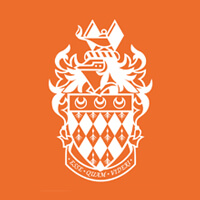fees waived
Astrophysics, MSci (Hons)
Royal Holloway, University of London, United Kingdom
Subject ranking
UK / CUG 24th
UK / Times 25th
UK / The Times 30th
Costs
food & rentS$24.4K / year
Entry requirements
Scholarships
Limited quantity
Information
Code
Intakes
Website (External)
Programmes
Information
Duration
2028
Our students often say their enthusiasm to study Physics stems from wanting to learn more about the Higgs particle, dark matter, nanotechnology or just a wide-ranging curiosity about how things really work. Whatever your reasons, our Physics department aims to inform and excite you in the study of Physics, the most fundamental of the sciences.On our four-year Astrophysics MSci, you’ll come to understand new concepts and paradigms, developing the deep conceptual framework that will allow an advanced understanding and appreciation of nature. You’ll develop core Physics concepts, including classical physics, quantum phenomena as well as mathematical and experimental skills.Unlike solid-state physics (as with the Physics MSci) the emphasis will shift to astronomy, astrophysics and cosmology, and in later years you’ll cover topics such as Stellar Astrophysics and Atomic & Nuclear Physics. As you progress through the course, modules in Particle Astrophysics, Planetary Geology and Geophysics, General Relativity & Cosmology and Optics will lead you into research level topics which you'll cover in greater depth as an MSci student, than on a BSc degree. In your fourth year you can choose from an incomparably wide range of options and expertise, including courses from University College London, King's College London and Queen Mary, University of London.We’re a research-intensive department based at our Surrey campus – well away from the light pollution of the big city, which allows our telescopes to provide the best observational astronomy in the University of London. We also have close ties with, and conduct research at major international laboratories such as CERN, ISIS and Diamond, plus collaborations with SEPnet universities and other major institutions around the world.Our teaching is informed by the most up-to-date research, and you’ll get to work closely with research groups, in laboratories where they work first hand on Physics at the forefront of research.
A local representative of Royal Holloway, University of London in Singapore is available online to assist you with enquiries about this course.

